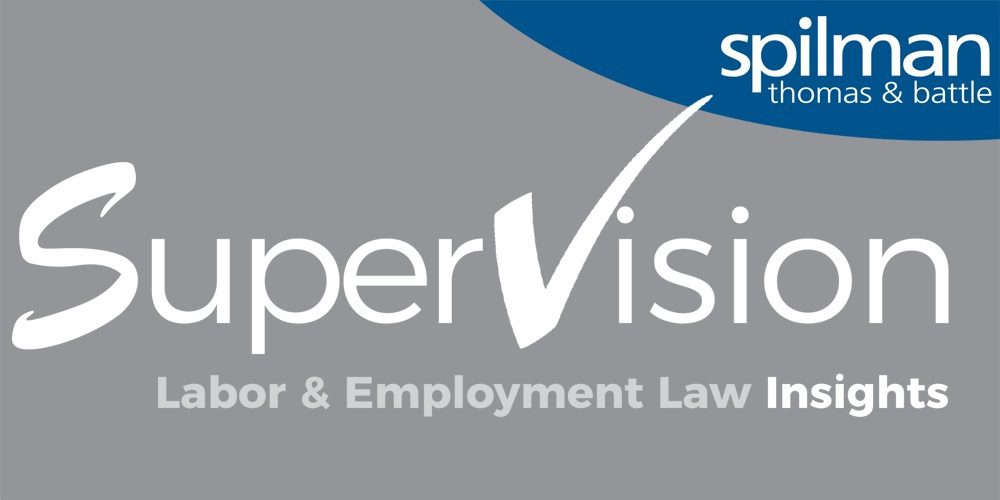Article
Resources
Article
EEOC Adopts Final Rule on Pregnant Workers Fairness Act: What Employers Need to Know

On April 15, 2024, the EEOC published its Final Rule to implement the Pregnant Workers Fairness Act (PWFA), which was signed into law on December 29, 2022. The Rule goes into effect on June 18, 2024, and will govern all employers with 15 or more employees.
The PWFA does not supplant or replace the protections provided by the Family and Medical Leave Act (FMLA) or the Americans with Disabilities Act (ADA), but instead provides additional protections to employees with limitations related to, affected by, or arising out of pregnancy, childbirth, or related medical conditions. Specifically, the PWFA obligates an employer to accommodate such employee unless doing so will cause an undue hardship on the operation of the employer’s business. There is no need under the PWFA for the worker’s condition to qualify as a disability under the Americans with Disability Act (ADA).
Some of the key takeaways from the Final Rule include:
1. Covered Conditions is Broadly Defined: Under the Final Rule, the phrase “limitations related to, affected by, or arising out of pregnancy, childbirth, or related medical conditions” includes current pregnancy, past pregnancy, lactation (including breastfeeding or pumping), use of birth control, menstruation, postpartum, gestational diabetes, preeclampsia, infertility and fertility treatments, endometriosis, miscarriage, stillbirth, and having or choosing not to have an abortion, among other conditions. There is no severity threshold under the PWFA, and the obligation to accommodate applies modest, minor, or episodic conditions.
2. Presumptively Reasonable Accommodations: The Final Rule determined that four accommodations are reasonable and should be granted in almost every circumstance without documentation: (a) additional restroom breaks; (b) food and drink breaks; (c) allowing water and other drinks to be kept nearby; and (d) allowing sitting or standing, as necessary. While not presumptively reasonable, other possible accommodations identified by the Final Rule include job restructuring, modifying work schedules, telework, use of paid and unpaid leave, and light duty work.
3. The Interactive Process and Identifying Reasonable Accommodations: Like the ADA, employers are obligated to engage in the interactive process; however, the employer cannot “unreasonably delay” providing an accommodation. An unreasonable delay is a violation of the PWFA. The employer also cannot require the employee to accept an accommodation other than one arrived at through the reasonable accommodation process, thus, employers will need to ensure any accommodations they are considering get reviewed with the employee. Unpaid leave cannot be mandated as the reasonable accommodation if another effective reasonable accommodation exists, i.e., unpaid leave should be a last resort.
4. Informally Triggering the PWFA and the Interactive Process: The Final Rule sets forth examples of how an employee may “communicate to the employer and request a reasonable accommodation,” noting that the process should not be difficult. The EEOC notes that “employees should not be made to wait for a reasonable accommodation… because they spoke to the ‘wrong’ supervisor.” Further, the Final Rule confirms that communication/notice need not be in writing and/or use specific words. A verbal request, even if the employer mandates the use of the form, will still trigger the obligation to accommodate under the PWFA. These provisions of the Final Rule obligate employers to ensure their workforce is appropriately trained on how to respond to PWFA requests for accommodation.
5. Employees May be Temporarily Excused from Performing Essential Functions: In the ADA context, employers are often told that they need not except an employee from performing an essential function of their job. Under the PWFA Final Rule, however, an individual remains qualified and entitled to a reasonable accommodation if they are only unable to perform an essential function of the job for “a temporary period” and the essential function can be performed in the “near future.”
6. Requests for Supporting Documentation Must be Reasonable: Permissible documentation is that which is sufficient to: (a) confirm the physical or medical condition; (b) confirm the condition is related to pregnancy, childbirth, or related medical conditions; and (c) describes the change or adjustment at work needed due to the limitation.
7. The Final Rule Imposes Limits on Employer Requests for Documentation: Under the Final Rule, employers cannot seek documentation for (a) the four accommodations described in Item No. 1, above; (b) when the limitation and need for a reasonable accommodation is obvious; (c) when the employer already has sufficient information to support a known limitation related to pregnancy; (d) when the request for accommodation is for lactation purposes; and (e) when the accommodation is available without documentation to other employees seeking the same accommodation for non-PWFA reasons.
8. Additional Factors to Establish Undue Hardship: In addition to the hardship case law applicable to claims for reasonable accommodation under the ADA and Title VII (religion), the PWFA imposes additional requirements, particularly when involving a potential suspension of an essential function, including: (a) consideration of the length and time the employee will be unable to perform the essential function; (b) whether there is work for the employee to accomplish; (c) the nature of the essential function and its frequency; (d) whether the employee has ever suspended essential functions for other employees in similar situations; (e) whether others can perform the essential function; and (f) whether the duties can be postponed or unperformed for a length of time.
9. Retaliation and Coercion Prohibited: Like most federal anti-discrimination statutes, the PWFA prohibits employers from retaliating against employees covered by the Act, or from attempts to coerce or intimidate employees from exercising their rights under the Act.
Employers with questions about training under the PWFA and/or changes to workplace rules should contact Spilman’s labor and employment team.


